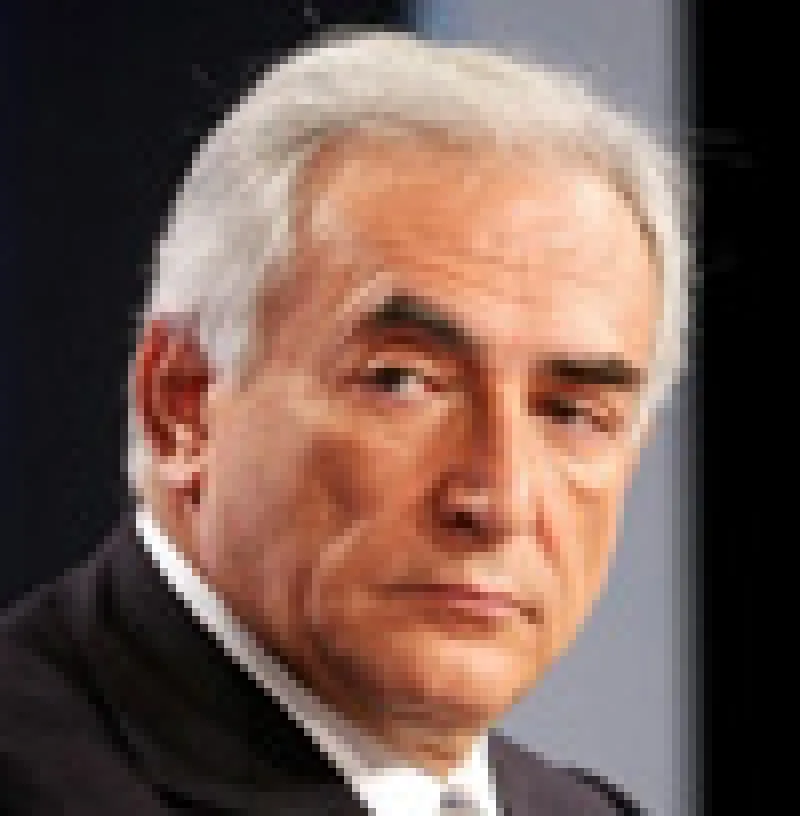Barely a year ago the International Monetary Fund was struggling to stay relevant, but the seizing up of the global financial system and the most severe collapse in economic output since the Great Depression have given the world’s economic firefighter a new lease on life.
By the time the IMF and the World Bank wrapped up joint weekend meetings in Washington late last month, the Fund was flush with commitments for a fourfold increase in its financial firepower, to nearly $1 trillion, and enhanced surveillance and early-warning roles that mark a return to its roots as the fulcrum around which international economic policymaking and coordination revolve.
Perhaps the more notable development was not the fresh funding or the agency’s new flexible credit line facility that comes with none of the usual dreaded conditions attached, but the back story to the headlines: the hard bargaining by fast-rising developing countries, led by Brazil, China and India, to use the IMF’s funding needs to promote their own interests when it comes to defining the terms of a new financial world order.
"We have the new resources," IMF managing director Dominique Strauss-Kahn told meeting participants. "The Fund is changing — changing in the way that for us to be effective, is to have a new relationship with countries."
That new relationship became bluntly apparent when, according to one Western source, during closed meetings Chinese officials, mostly reading from talking points, were unusually harsh in criticizing the IMF for failing to foresee the current crisis, perhaps because it was distracted by efforts to identify currency misalignments. The Chinese have long believed these efforts were directed by the U.S. to pressure Beijing to allow an accelerated appreciation of the yuan.
That set the tone for the approach by China and its BRIC allies. Holding the trump card of high currency reserves that could bolster the Fund’s lending resources, the BRIC countries won some concessions. First, China secured an agreement for strengthened IMF surveillance of the major reserve currency countries, starting with a broad review of the entire U.S. financial system. Then rising developing powers won a commitment by the Fund to offer Special Drawing Rights–denominated bonds that would be placed with the central banks of the high-reserve countries, rather than requiring permanent loans as the vehicle for their contribution to the IMF.
The New Arrangements to Borrow, created in 1998 as an emergency credit line with contributions from 26 member countries, is being used to bolster the Fund’s resources quickly, compared with the longer and more laborious negotiations to reset quotas. On April 2 the Group of 20 endorsed a proposal first outlined by U.S. Treasury Secretary Timothy Geithner to increase the NAB from $50 billion to as much as $500 billion. By mid-April the IMF had pledges for $324.5 billion from the European Union, Japan, Norway and the U.S. The four BRIC nations also signed on for NAB contributions but presented a coordinated negotiating stance to use the SDR bond scheme to win a bigger say in the Fund’s operations.
Buying bonds from the Fund rather than having it provide direct loans may seem to be a technical point, but it’s loaded with political significance and potentially powerful implications for the diversification of foreign reserves — even for the status of the dollar as the international reserve currency. First, the bonds would be temporary; they would carry a one-year maturity that would likely be rolled over to be considered a form of long-term funding for the IMF. That gives the bondholders continued leverage to negotiate the broader reform of quotas and voting rights, an issue slated to be decided by 2011. As Brazilian Finance Minister Guido Mantega puts it, purchasing the bonds would allow for a rapid infusion of capital without "undermining the reform process."
Buying SDR-denominated bonds would also give high-surplus countries a back channel to diversify their foreign assets out of the dollar; the IMF bonds represent an immediate new reserve asset and, if they were to be traded into a secondary market and their volumes expanded, could become a viable currency. "It could be the first step in a long road to making the SDR a truly international reserve currency," suggests Barry Eichengreen, an economics professor at the University of California, Berkeley, who has written extensively on monetary reform.
Strauss-Kahn says the Fund’s first-ever bond issue — the last time the idea was raised was in the 1980s — is "very likely to happen." The Fund has worked out a template for the possible terms and transfer mechanism, which could be finalized by early summer.
For all that can be said about the transformation of the IMF and the steady shift in power to developing countries, neither of these changes would have been possible without support from the U.S. Geithner has been leading the charge to retool the IMF with the increases in its funding and an overhaul of the governing power to give more weight to the developing countries, through new quotas and modifications to the executive board that may alter the U.S.’s veto power.
These changes in the governance of the IMF also reflect the waning days of the Group of Seven as the key for coordinating international economic policy. That the G-7 meeting on the Friday before the IMF/World Bank summit was a scant three hours long and paled next to the immense agenda laid down by the G-20 earlier in April was not lost on anyone.
Although such changes are understandably uncomfortable for a country accustomed to setting the terms of the debate, Eichengreen notes, it’s better for the U.S. to get in front of these developments while bringing new, important players to the table. "Even if the epicenter of the current financial crisis lies in the U.S., the global imbalances that accumulated over the past decade played a significant role," he says. "Adapting to the need for these changes in the IMF and toward a G-20 is to make systemically important countries like China feel they are empowered and share a responsibility for the stability of the international monetary system."






